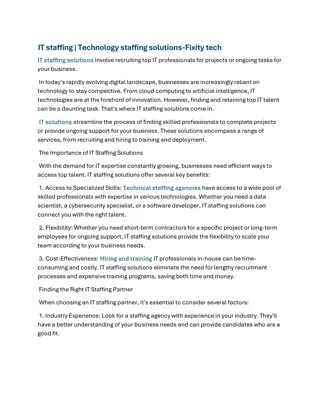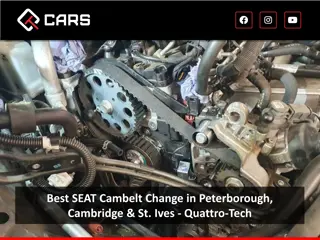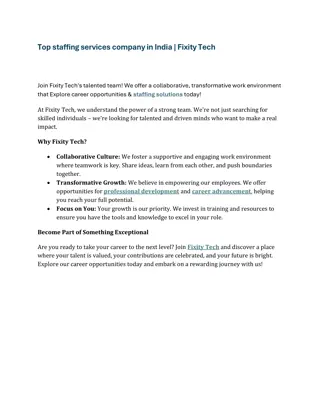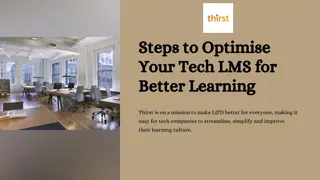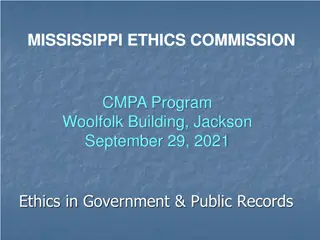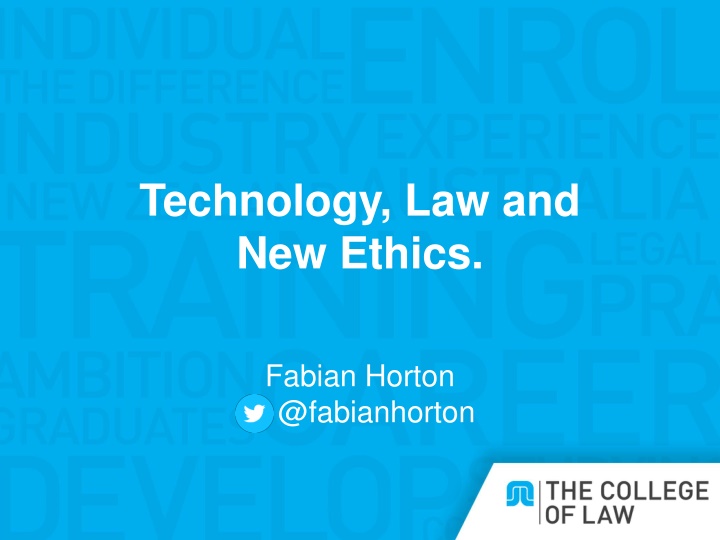
Exploring Technology, Law, and Ethics: Insights on the Impact and Implications
Delve into the intersection of technology, law, and ethics through discussions on the neutrality and autonomy of technology, the role of humans in driving social change, and the dual nature of technology's impact. Reflect on thought-provoking questions and quotes from experts in the field.
Download Presentation

Please find below an Image/Link to download the presentation.
The content on the website is provided AS IS for your information and personal use only. It may not be sold, licensed, or shared on other websites without obtaining consent from the author. If you encounter any issues during the download, it is possible that the publisher has removed the file from their server.
You are allowed to download the files provided on this website for personal or commercial use, subject to the condition that they are used lawfully. All files are the property of their respective owners.
The content on the website is provided AS IS for your information and personal use only. It may not be sold, licensed, or shared on other websites without obtaining consent from the author.
E N D
Presentation Transcript
Technology, Law and New Ethics. Fabian Horton @fabianhorton
Soon companies will need a CPO; Chief Philosophical Officer. Prof. Toby Walsh The Promise of Artificial Intelligence (Speech delivered at The Legal Innovation and Tech Fest conference, Sydney 4 June 2018)
Ethics Tech Law Society
Three main questions What is technology? Is technology neutral? Is technology autonomous? Why are these questions important?
What is technology? Articles, devices (Instrumental) Data Systems: modes of production Human system: military, government, industry
Tools Systems Data Processes
Is tech neutral? If we treat tech as neutral, that engenders a certain response, and visa-versa. Can the use of technology be separated from its purpose ?
GUNS DONT KILL PEOPLE PEOPLE KILL PEOPLE
Is tech autonomous? What is the driving force in social change; technology or humans? This is a question about the relationship between humans and technology. It deals with social change. (Technological Determinism)
Technology leads a double life, one which conforms to the intentions of designers and interests of power and another which contradicts them proceeding behind the backs of their architects to yield unintended consequences and unintended possibilities. Jacques Ellul
Thought exercises Does Facebook change the way we relate to each other or does the way we relate to each other determine what becomes popular in Facebook? Has LinkedIn changed business networking? Does hyperconnectivity change the way we think?
Legal Code Disrupt Legal Profession Disrupt Legal Culture Disrupt
The three law-tech domains Law of technology domain Legal Code Disrupt Tech and legal industry domain Legal Profession Disrupt Tech-law culture domain - Legal Culture Disrupt
Applying the law-tech framework Do we look to regulate the manufacturing of the technology or its use? Do we take a cultural approach and use educational means? Are there systems that can be changed or improved?
Applying the law-tech framework Do we look to regulate the manufacturing of the technology or its use? Do we take a cultural approach and use educational means? Are there systems that can be changed or improved?
Types of law-tech ethics The extension by technology of known legal ethical issues The creation by technology of new ethical concerns and their extended legal consequences The question of ethical oversight of emerging technologies.
Extension by technology Responses to some problems are relatively settled. Development of the issues continues as new facts arise. Technology s advancement is incremental. Small advancements can create new problems in well known ethical areas.
Creation by technology New technologies, new issues. The problems are sometimes created inadvertently (not due to primary functions of the technology). Can have direct legal consequences.
Oversight of emerging tech Tech and culture do not develop at the same rate (culture lag). Can create a disconnect between a technology and ethical norms relating to it.
The automation of factories has already decimated jobs in traditional manufacturing, and the rise of artificial intelligence is likely to extend this job destruction deep into the middle classes, with only the most caring, creative or supervisory roles remaining. Prof. Stephen Hawking Guardian. July 2016
One more robot per thousand workers reduces the employment to population ratio by about 0.18-0.34 percentage points and wages by 0.25-0.5 percent.. Robots and Jobs: Evidence from US Labor Markets Daron Acemoglu, Pascual Restrepo NBER Working Paper No. 23285, March 2017
Imperatives Lawyers have an extremely important role to play, but in many ways it will be different a different role. There needs to be a paradigm shift in how we think about the law and its role in a hyper- connected digital world. If lawyers are to be heard work needs to start now, otherwise decisions will be made for us.
Thank you Fabian Horton fhorton@collaw.edu.au @fabianhorton College of Law Melbourne, Australia





